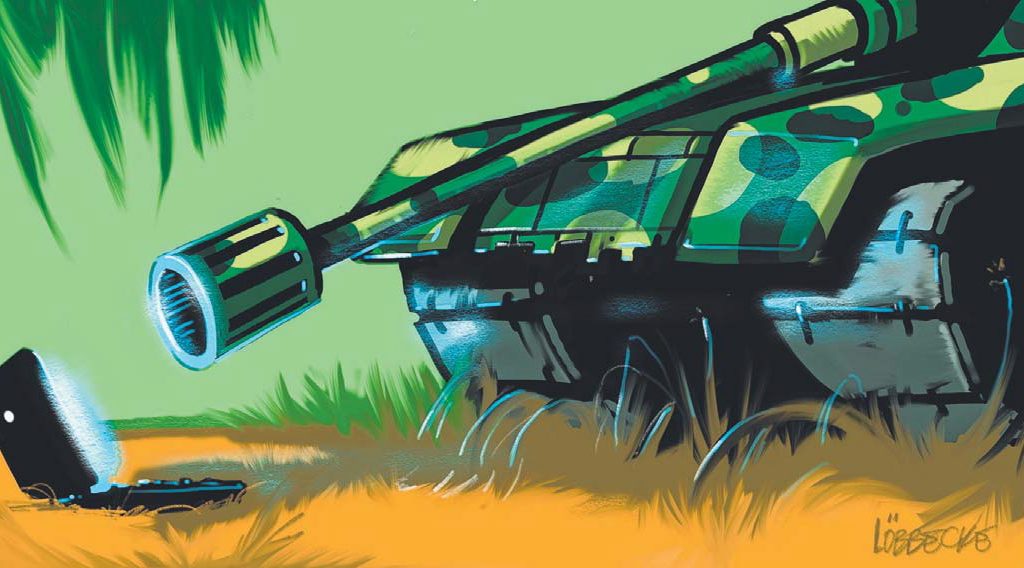In September 2006, Thailand’s military rolled the tanks on to the streets to roll back Prime Minister Thaksin Shinawatra.
Where ballots had failed, the threat of bullets was used to oust a popularly elected and charismatic leader judged a serious threat to the Southeast Asian nation’s traditional rulers and powerful elite.
But while Thailand’s umpteenth coup since 1932 snuffed out Thaksin’s elected government, it lit a fire under our humble academic blog at the Australian National University.
Earlier that year we set up New Mandala – a website on Southeast Asian political and social affairs. Our aim was to provide regular posts containing anecdote, analysis and new perspectives on the region, as well as broadcasting key insights on this exciting part of the world to the wider public.
New Mandala was intentionally experimental. We were unsure whether we would garner any audience. We reported on research in progress; we flagged potential subjects of interest; and we sought feedback on our more traditional publications.
Then came the 2006 coup in Bangkok and our obscure online undertaking was catapulted to prominence. Since those tumultuous days, New Mandala has attracted and retained an audience much larger than the handfuls that attend conference presentations or read scholarly papers.
This is not an attempt to gloat – it is merely the reality of the medium.
Today, our daily audience of thousands is drawn from every country of Southeast Asia and well over 100 other nations around the world. Many of our most regular and passionate readers are not academics. They tell us that they appreciate the openness of our editorial policy and the opportunity to engage with the big ideas in Southeast Asian studies.
In the past ten years we have published more than 5,000 articles, 55,000 comments, had tens of millions of page reads and been read by tens of thousands across the globe. We’ve covered topics from the royal family in Thailand to the fine art of Southeast Asian penis piercing. Many of our posts provide serious academic commentary; others are more light-hearted. A few are downright silly.
We’ve also ‘starred’ in earnest, anarchic and fun YouTube videos filmed in makeshift broom cupboard studios. Even these have received many hundreds of thousands of views.
In truth, when we travel for work in the region, we are usually recognised for these activities rather than our latest books or journal papers. “Ah, you’re from New Mandala.”
Our experiences have shown that with the right content, regular updates and savvy marketing, academic bloggers can build a community of peers that would fill seminar rooms, lecture theatres, and conference venues many times every day.
Statistics we have seen indicate that a blog run by a couple of academics can generate as much Internet traffic as the conventional websites of an entire Faculty.
In our experience, the public has a real appetite for this direct connection with experts and their insights. Having had so much of their information spoon fed to them via mediated forms, people are hungry for substance over spin. They seek scholarship over soundbites.
Academic blogging is also a two-way process of exchange and learning. Any teacher worth their salt will tell you they learn from their students. Likewise, academics who blog learn from their readers and commenters.
Another advantage is that blog posts provide valuable building blocks for more formal academic articles. And they also open up discussions to a much broader and varied audience than the academic world.
In this way, academic blogging extends the traditional boundaries of peer review. As a consequence, not only does scholarship improve, but we get better as academics – as both scholars and ‘citizen scholars’.
There are many other positive spin-offs for academics who venture into the blogosphere. Our blogs provide a useful method for communicating with the media, for example, often helping enrich ‘the first draft of history’.
But perhaps most important of all, blogging can maintain the daily discipline of writing. At a time when heavy administrative loads distract many social and political scientists from their interpretative vocation, writing online is one way to keep the tools of argument and analysis as sharp as possible.
In the future, effective engagement and outreach will require a much more nimble academic posture than most scholars have adopted in the past. We clearly need to diversify the audiences for whom we write.
So it’s finally time to stop looking down our nose at public commentary as a second rate form of academic communication. This matters for everyone, but especially, as New Mandala shows, for those who want to deal with the big issues in international affairs.
Dr Nicholas Farrelly and Professor Andrew Walker are co-founders of New Mandala and based at the ANU Coral Bell School of Asia Pacific Affairs. New Mandala marks ten years with a public symposium at ANU on Thursday, 16 June (12.30 – 4pm).
 Facebook
Facebook  Twitter
Twitter  Soundcloud
Soundcloud  Youtube
Youtube  Rss
Rss 